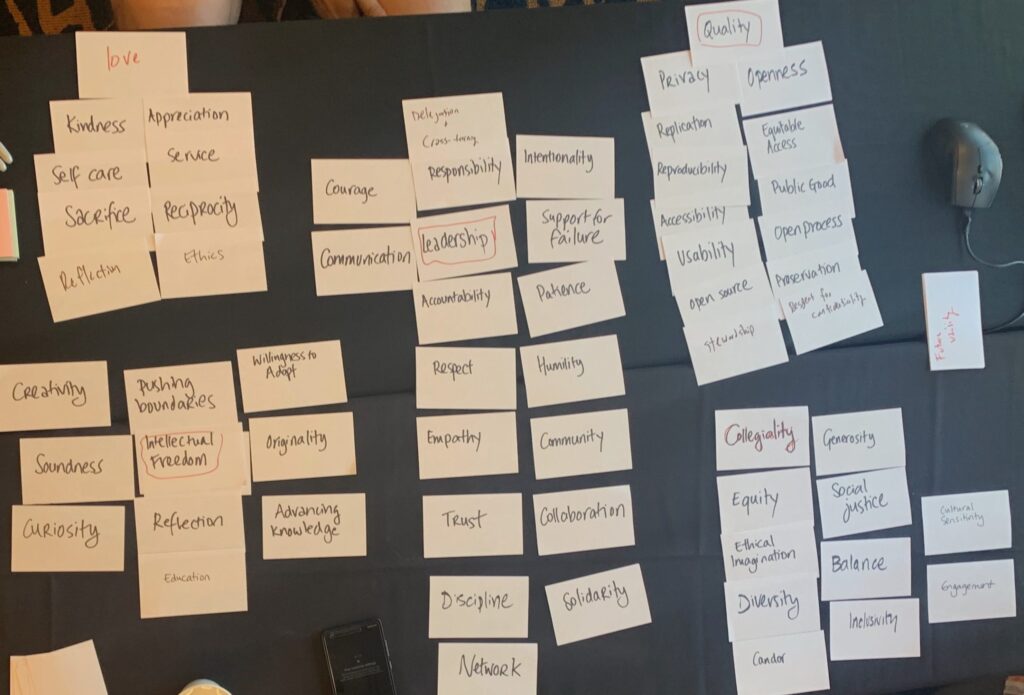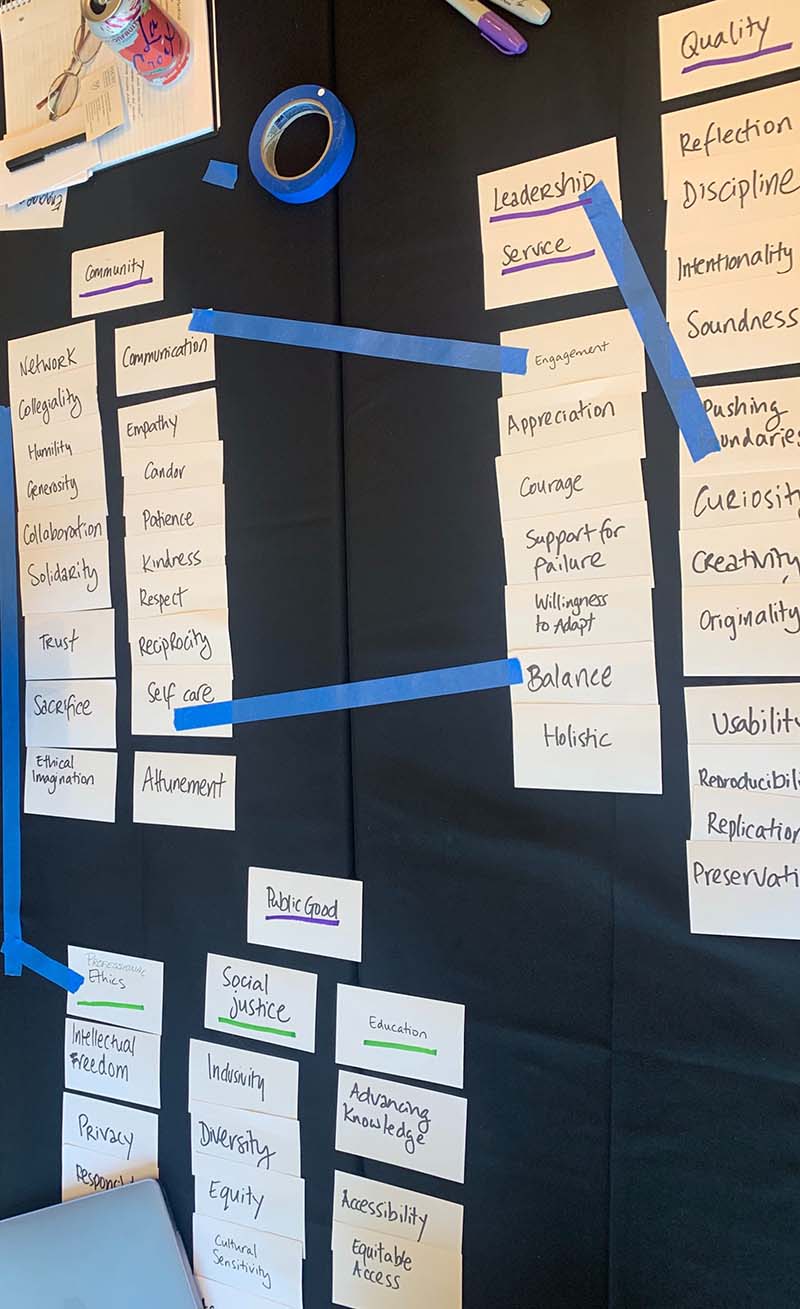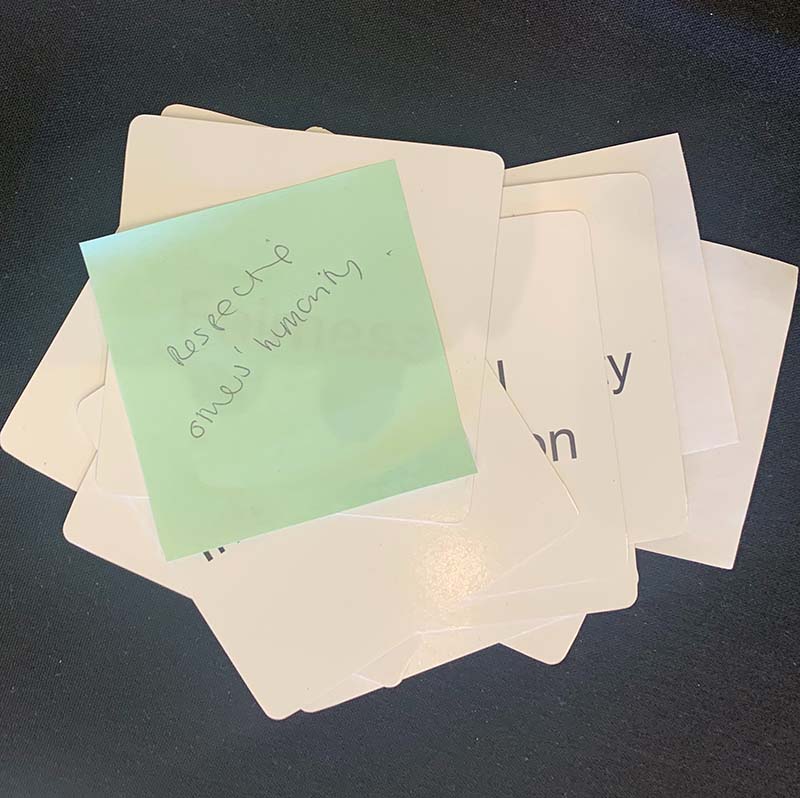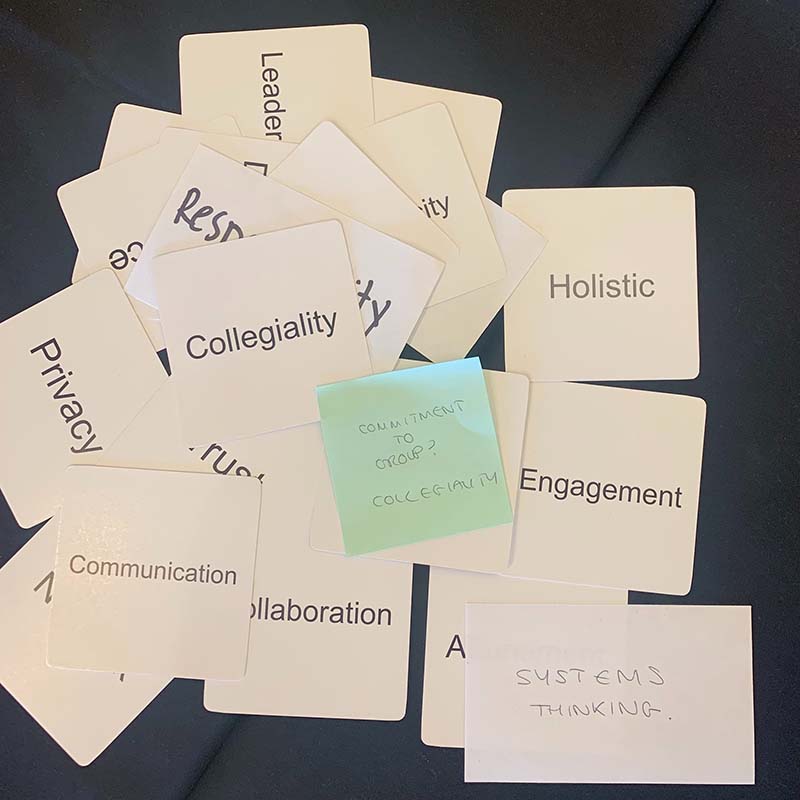Values Framework
HuMetricsHSS supports the creation of values-based frameworks to guide all kinds of scholarly process, and to promote the nurturing of a values-enacted approach to academia writ large.
At our workshops and in our toolkit, we emphasize that values are locally negotiated and frameworks locally built. That’s the explicit point of the workshop, to make space for open conversation about values and their meaning, to come to agreement on what matters for a given group, and then to work on constructing a framework that could be used to guide evaluation in the academy — whether that’s through the tenure and promotion process, the setting of annual goals, the hiring of new faculty, or decision-making about what kinds of digitization projects to take on, what kinds of collections to develop, or what kinds of projects to publish at an academic press.
HuMetricsHSS takes the approach that if our metrics are not shaped by our core values, our values will be distorted by our metrics.
In early 2021, after much discussion, the HuMetricsHSS team decided to revise and recommit to our own values framework as follows:

This isn’t the exact framework we first came up with in 2016, when our initial team committed to the five values outlined below in pursuing a values-based approach to transforming the culture of higher education:
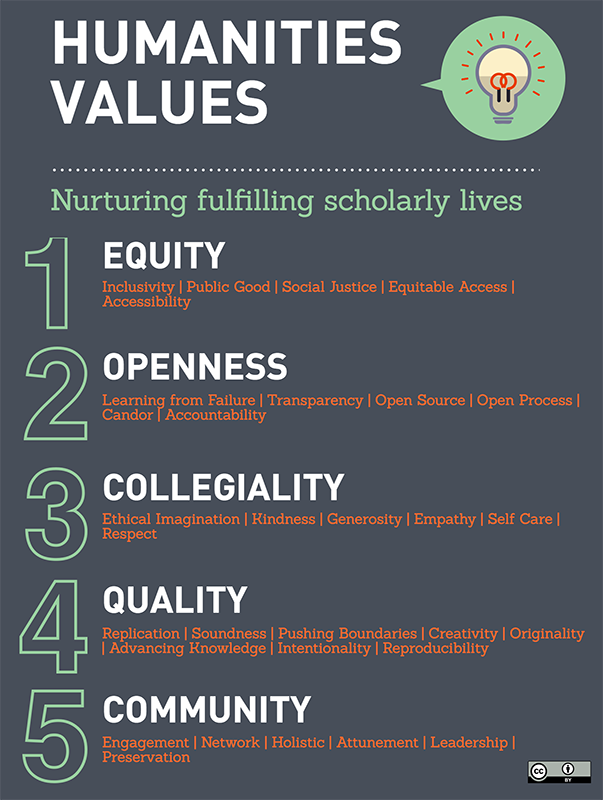
EQUITY, or the willingness to undertake study with social justice, equitable access to research, and the public good in mind;
OPENNESS, which includes a researcher’s transparency, candor, and accountability, in addition to the practice of working and publishing in the open when possible;
COLLEGIALITY, which can be described as the professional practices of kindness, generosity, and empathy toward other scholars and oneself;
QUALITY, a value that demonstrates one’s originality, willingness to push boundaries, methodological soundness, and the advancement of knowledge both within one’s own discipline and among other disciplines and with the general public, as well;
COMMUNITY, the value of being engaged in one’s community of practice and with the public at large and also in practicing principled leadership.
Quality: It's a Process
Over the past few years, through conversations with people attending our workshops or conference presentations — and during our own conversations about values-washing, empty signifiers, and empty values — we have since come to a more troubled understanding of "quality" as a term. Often, the academy uses prestige — the imprimatur of established organizations such as publishers, aspirations toward "peer institutions," and other proxies — to signify excellence or quality. Rather than implicitly agreeing with this definition of quality scholarship and incorporating it as a value among the others, we argue instead that "quality" scholarship is what comes from applying the other values listed here, as well as other values a scholar might hold. If a piece of scholarship is crafted with transparency, empathy, and accountability and if it advances sound knowledge toward goals of social justice and the public good, then that work has achieved a "quality" not captured in other capital- and product-driven measures of excellence.
Interrogating Our Own Values
Quality is not the only one of our "original" values that gives us pause. While in 2016 our team also felt "collegiality" to be a positive value — meaning by it something akin to the "generous thinking" Kathleen Fitzpatrick espouses in her recent book by the same name — participants at our workshops, particularly people of color, called it out for its silencing and for normalizing connotations that silence and constrain the voices of traditionally underrepresented groups in the academy, pointing out that a perceived lack of "collegiality" has often been used to deny tenure or promotion.
Even as we acknowledge our own evolution in our thinking, we are leaving this graphic here, with the values stated, (a) as evidence of our commitment to process, including the process of thinking, reflecting, and being open to change, (b) as an indication of the contested nature of language and the importance of defining ones terms in early conversations about values, and (c) as an example of how a scholar might begin to organize a framework for understanding the interplay between their values and their work.
Building Local Frameworks
If members of a team, department, or school can come to agreement about a framework that works in a given institutional setting at a given time, then practitioners can use that to guide their process, just as evaluators can use it to frame their assessment in a way that allows for a more values-enacted approach to all kinds of academic work.
What do you value? What about others in your department / unit / school? What kind of framework might work for your group?


